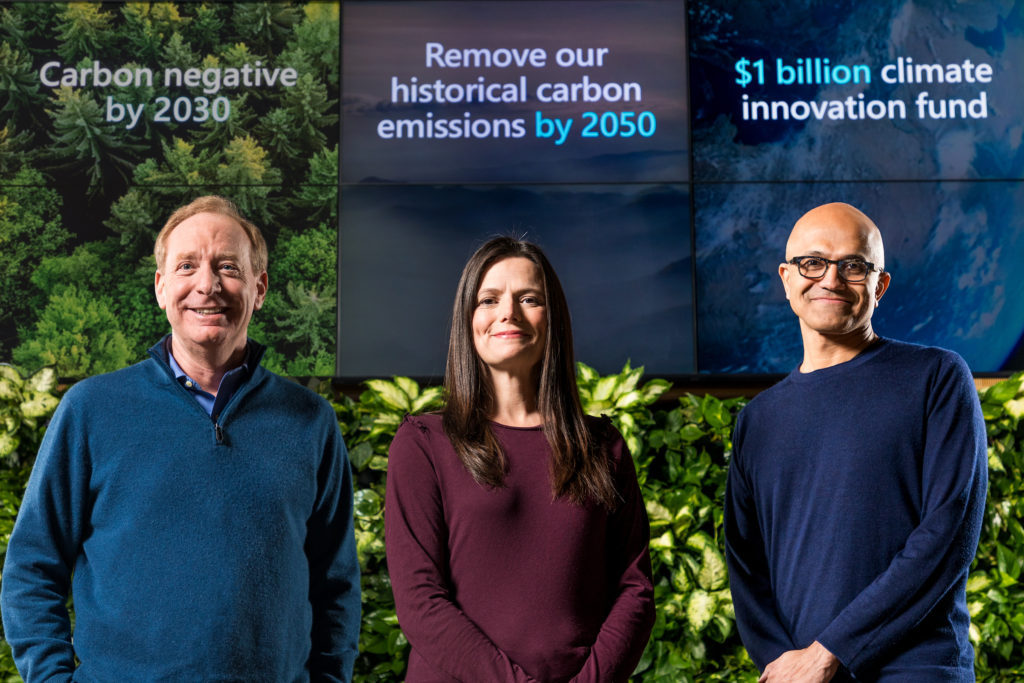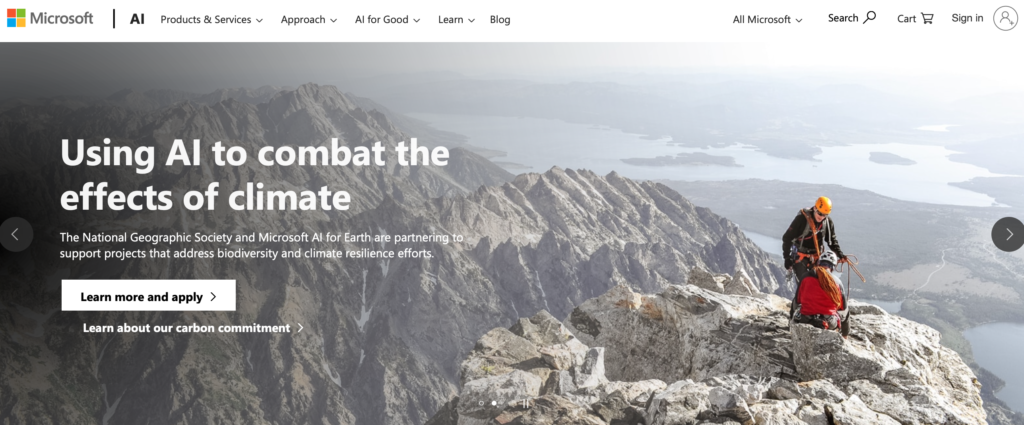
Microsoft announced this month that it’s going carbon negative – one-upping the green initiatives of its competitors and other leading global brands, and positioning it anew as visionary, socially responsible brand.
A step further than carbon neutral, which generally means offsetting carbon emissions, going carbon negative means the tech company plans to remove more carbon from the environment than it emits. Microsoft has pledged to go carbon negative by 2030, plus take measures to remove carbon it has emitted since its founding in 1975. It also committed $1 billion to a climate innovation fund that would jumpstart new technologies for reducing and removing carbon from the environment.
While Microsoft’s move is good for the environment and stands as an example for others in the tech industry, perhaps the most certain effect is on its brand. Globally, consumers and investors are demanding businesses adopt sustainable practices. [See asset manager BlackRock’s 2020 letter to investors stating sustainability will be central to its investment approach.] This month’s announcement is bringing Microsoft positive publicity and aligning it with the values of its customers. Importantly, the new initiative shows Microsoft is committed to sustainability in a way that puts the public good before profits.
That’s not to say Microsoft doesn’t stand to gain from being a leader in sustainability efforts. Many of its products are sold to businesses who are being pressured by their own customers to commit to environmental sustainability. Aligning themselves with Microsoft will help them benefit from the reduced carbon emissions as well.
Microsoft also appears to be positioning itself as a leading platform for green tech. One of its top products, Azure global cloud storage, is central to Microsoft’s AI for Earth initiative, which offers grants to use Azure-hosted AI for environmental projects, hosts public environmental data, and makes open-source technology available for connecting with Azure and its related AI tools. Through this project, Microsoft will already have a foothold in the green tech industry as it grows in the coming decades.

The carbon-neutral trend has grown exponentially in the last two years, with expanding awareness of the effects of climate change on the health of the planet. Companies operating as carbon neutral – or who are on the path to carbon neutrality – include giants such as Google, Amazon, Lyft, JetBlue and Starbucks, which also made known this month its intention to become resource positive. In the past six months alone, at least five airlines – mostly in Europe – have pledged to become carbon neutral. This is in large part a reaction to Swedish environmental activist Greta Thunberg’s decision to sail to New York in August for the U.N. Climate Action Summit, calling attention to the amount of greenhouse gasses emitted by commercial jets.
Microsoft’s carbon-negative initiative only adds to its already-positive reputation for corporate social responsibility. Its CSR programs target responsible sourcing, environmental sustainability, accessibility and human rights. Additionally, Microsoft founder Bill Gates stepped down as CEO in 2000 to grow the Bill and Melinda Gates Foundation with his wife. The foundation uses the couple’s vast wealth to tackle challenges in global health, global development and U.S. education.

3 Responses to Microsoft Goes Carbon Negative and Reputation Positive